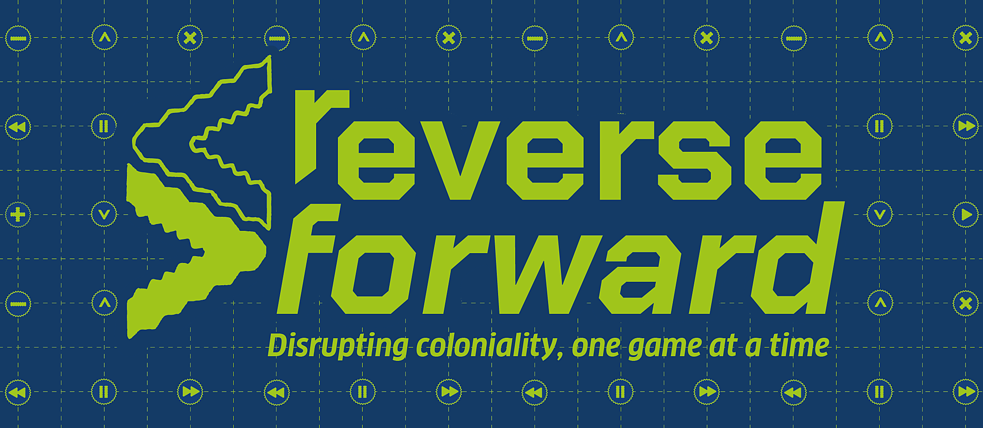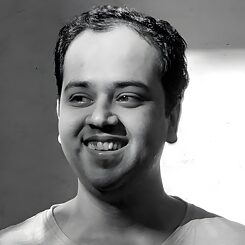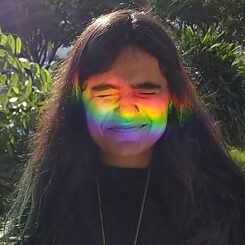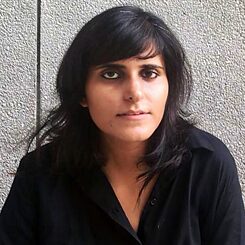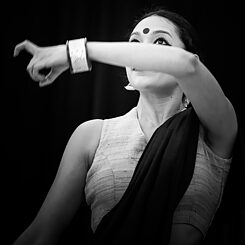ReverseForward
About the Project
ReverseForward was a GameLab that brought diverse people, skill sets, and perspectives together to discuss and critique the role of colonialism and its impact on contemporary societies, from their perspectives as artists, museum professionals, historians, gamers, designers, coders, etc.
The focus of the lab centred on the South Asian perspective and aimed to reflect on the various processes of nation-building, offering perspectives on sovereignty, freedom, and equality. At the same time, the lab catalysed conversations between South Asia and Europe, particularly Germany.
The conversation around colonial pasts has largely remained confined to academia and circles of history writing. The ReverseForward GameLab intended to connect historical perspectives with other practitioners in multiple fields to expand the debate and offer alternative entry points in the larger debate around colonialism. The partners involved were the pivot of networking for a long-term partnership.
ReverseForward was a process-based lab involving people over a period of 6 months that then led to a 5-day hybrid festival in New Delhi in May 2023. This consisted of several talks, performances, readings, panel discussions and round tables culminating with a hackathon and a final Townhall open to the public.
The 5-day festival with various components and hackathon encouraged interdisciplinary exchange and production of game ideas that could reach minimum viable prototypes. The game ideas that were produced aimed to open the discursive realm to play, to forge connections and build long-term relationships between participants and especially to extend a critical view on colonialism and potential strategies of de-colonialism.
Designed to include several components, the 5-day lab hoped to deepen inquiries into the nature of coloniality and the potential of games to be able to enter its psyche. The project endeavoured to overcome colonial continuities and initiate and strengthen partnerships on equal terms.
The GameLab was anchored by Vera Marušić (Rautenstrauch-Joest Museum Cologne), Laxmi Khanolkar (Apar Games), Amarnath Praful (Image maker, writer, teacher), Thomas Lilge (GameLab Berlin), and Avni Sethi (Conflictorium / Museum of Conflict).
The focus of the lab centred on the South Asian perspective and aimed to reflect on the various processes of nation-building, offering perspectives on sovereignty, freedom, and equality. At the same time, the lab catalysed conversations between South Asia and Europe, particularly Germany.
The conversation around colonial pasts has largely remained confined to academia and circles of history writing. The ReverseForward GameLab intended to connect historical perspectives with other practitioners in multiple fields to expand the debate and offer alternative entry points in the larger debate around colonialism. The partners involved were the pivot of networking for a long-term partnership.
ReverseForward was a process-based lab involving people over a period of 6 months that then led to a 5-day hybrid festival in New Delhi in May 2023. This consisted of several talks, performances, readings, panel discussions and round tables culminating with a hackathon and a final Townhall open to the public.
The 5-day festival with various components and hackathon encouraged interdisciplinary exchange and production of game ideas that could reach minimum viable prototypes. The game ideas that were produced aimed to open the discursive realm to play, to forge connections and build long-term relationships between participants and especially to extend a critical view on colonialism and potential strategies of de-colonialism.
Designed to include several components, the 5-day lab hoped to deepen inquiries into the nature of coloniality and the potential of games to be able to enter its psyche. The project endeavoured to overcome colonial continuities and initiate and strengthen partnerships on equal terms.
The GameLab was anchored by Vera Marušić (Rautenstrauch-Joest Museum Cologne), Laxmi Khanolkar (Apar Games), Amarnath Praful (Image maker, writer, teacher), Thomas Lilge (GameLab Berlin), and Avni Sethi (Conflictorium / Museum of Conflict).
Themes of the Game Lab
Colonizing <=> Decolonizing <=> Re-imagining | How to Re-imagine a Museum
Anchored by Vera MarušićColonizing <=> Decoloniing <=> Re-imagining is an inter-connected never-ending cycle that when read forward results in a positive outcome but when looked at in reverse highlights the challenges that come with trying to dismantle colonial structures in order to imagine otherwise. Colonizing here is defined as taking up space in institutions in order to allow for declonizing-the act of dismantling and critizing, which thus brings forth re-imagining, the creation of new inclusive structures and forms of knowledge production.
The World As a Playground
Anchored by Thomas LilgeReal-world concepts, ideologies, beliefs, values and much more are reflected in (video) games. As (mass) media, games are always an excerpt from our time. In its original state for example, Monopoly was a protest game against illegal land grabbing and the subjugation of peasants. It became known as a game that conveys capitalist processes in an extremely entertaining way as a playful experience.
Play and Narrative Strategies
Anchored by Laxmi KhanolkarNarrative mechanics are responsible for making meaning and manipulation in game design; how do we then utilize narrative techniques and methods to express complex worlds in games?
On Translations: Contemporary Art Practice and Research
Anchored by Amarnath PrafulThe table brings together various contemporary practitioners who use research and art practice situated in the interstices of language, performance, drawing, image, text, and sound. The propositions that will be presented operate within, against, and adjacent to systems such as documents, archives, institutions, and scholarships in relation to the colonial matrix of power. One Imagines that the traces of coloniality, its attitudes, hierarchies, and effects can be detected in the premises of these knowledge systems. That the research and practice stems from and gives body to certain subversive impulses towards Decoloniality.
